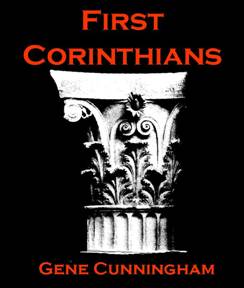 This study was presented in the August 2013 Bible conference in Southern California.
This study was presented in the August 2013 Bible conference in Southern California.Though Corinth was a “problem church” for Paul, how thankful we ought to be for them, for without their problems and questions, we would not have the answers and guidance provided in this wonderful letter. As with all the epistles, the challenge is to lay hold of the character of Christ. We are to be “transformed by the renewing of [our] minds” (Rom 12:2), and to “Let this mind be in you which was also in Christ Jesus” (Phi 2:5).
Key verses for this study:
- “For I determined not to know anything among you except Jesus Christ and Him crucified.” 1Co 2:2 and
- “Therefore purge out the old leaven, that you may be a new lump, since you are truly unleavened. For indeed Christ, our Passover, was sacrificed for us.” 1Co 5:7
1st Corinthians – California 2013
Gene Cunningham - January 20, 2003
A Faith That Endures #5

Conference notes for this series can be found [HERE]
Scripture References: James 2:26, James 2:14-26, James 2:14-17, James 2:16, John 14:12-15, James 2:12-13, Romans 8:13, James 2:23, James 2:8-11, James 5:20, James 2:25-26, James 2:1-7, James 5:15, James 2:21-24, Ephesians 2:8-10, James 4:12, Romans 4:1-5, Titus 2:14, James 2:14, James 2:18-26, James 2:18-20
From Series: "James - A Faith That Endures"
Given a the Washington DC Conference in November 2007 this 8-part study in James examines our faith. We are to be 'doers' and not 'hearers' only. By this we are 'justified' before men (not God). In this way James complements (and precedes) Paul writings.

